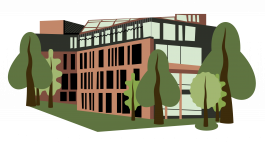Constructing in the Old English Classroom

Institution: University of Galway
Discipline: Old English Poetry
Author: Frances McCormack
GenAI tool(s) used: ChatGPT
Situation / Context
This is a final-year large-group Old English Poetry course in the Discipline of English. There are approximately 150 students (100 Home Students and 50 Visiting Students). The Home Students complete a midterm essay and final exam, and the Visiting Students write a midterm and final essay.
My teaching philosophy recognises the importance of student investment in the object of study, and I attempt through teaching and assessment to make the learning something in which the students find intrinsic motivation and reward. By examining how knowledge is constructed and the real-world implications of that construction, I can engage the students emotionally; by asking them to critique the construction of knowledge, they can engage critically. It is my intent that this will provide them with some ownership over learning objects and allow them to acquire a deeper level of learning outcomes.
Task / Goal
This course aims to probe the construction of knowledge in the field of Old English Studies itself. I wanted the students to understand how learning is bounded and often culturally contingent. The GenAI assignment provided students with an opportunity to apply critical thinking to examine the ways in which scholarly shibboleths (such as the assumed veracity of Tacitus’ Germania) can be passed down, to use their learning to construct their own analysis, and above all to identify and name the skills that they have acquired in their studies. This learning offers students some insight into the fallibility of the scholarly method and the need for active and ethical research, but also the chance to engage with it on their own terms, not as something distal and unfamiliar, but as something through which they may find an entry point rooted in their own emotional engagement.
Actions / Implementation
The Assessment Guidelines for the Visiting Students were as follows:
- Ask ChatGPT to write an essay on “The Heroic” in Old English Poetry and to cite three sources.
- Critique ChatGPT’s response (1000 words).
- Write your own essay on the concept of the heroic in Old English Poetry, making substantial reference to three poems on this module, and citing three scholarly sources (1000 words).
Darvishi et al., (2022), in their review of the use of GenAI to develop peer assessment systems, examine the benefits of peer review activities, from improved comprehension to the development of evaluative judgement and writing skills, and beyond. I first explored these outcomes in a formatively assessed small-group context in a class on The History of the English Language, in which I had asked the students to produce an answer to a question with the help of ChatGPT and to critique and fact-check the same. The results from this pilot experiment demonstrated that students were keenly aware of the skills that they possessed that were not demonstrated by ChatGPT and were able to articulate how those skills could be employed to provide a more cogent and persuasive response to the question.
Outcomes
In the Old English Visiting Students’ assignment, students readily identified inherited scholarly shibboleths. They questioned a priori assumptions; critiqued the evidence, and readings; and produced their own more thoughtful, more research-informed essays with incisive criticism and adept readings of primary and secondary sources. Their critiques of ChatGPT focussed largely on the superficiality of the responses, the uninspiring readings of the poems that resulted, and the lack of engagement with recent discussions in the field.
By contrast, despite us having spent an entire semester addressing some of the untested assumptions and culturally biased readings in the scholarship, the Home Students’ exam responses to the question were often quite conservative and tended to repeat said shibboleths. Their exam question had read: ““Beowulf is frequently described as a “heroic poem”. Examine the concept of the “heroic” with reference to at least one other text studied in this course and assess how appropriate the term is to describe this text.”” In future years, both Visiting and Home Students will complete a final take-home essay similar to that taken by the Visiting Students this year.
Reflections
Because this was a pilot version of this assignment, I gave students free opportunities about what to critique ChatGPT’s responses and how. This worked well, because they often identified in their essay elements of style or argumentation that I could then build on in my own feedback to them. Again, there were broad perspectives: while most critiqued the heroic as a construct, many developed their own research questions, examining women’s grief as a counterpoint, investigating the trajectory of the concept of the heroic in the scholarship, or analysing the construction of the monstrous. In several of the critiques of ChatGPT, students reflected on GenAI broadly and how its uncritical reproduction of scholarly shibboleths can further constrain knowledge. These are questions that are vast and not anything I can speak to in detail here; nor were they an intended purpose of the assignment, but rather a happy outcome.
In future iterations, I will offer thematic essays (on, for example, monsters, the role of women, identity, etc.) to further deepen the level of scholarly and thematic engagement with the material.
In line with the course’s learning outcomes, then, this GenAI assignment proved more fruitful than the traditional exam, offering the students the opportunity to critique the construction and reception of knowledge and develop original and informed critical analyses.
Further Reading
Bekker, C. I., et al. (2023). The happy learner: Effects of academic boredom, burnout, and engagement. Frontiers in Psychology, 13, Article 974486.
Darvishi, A., et al. (2022). Incorporating AI and learning analytics to build trustworthy peer assessment systems. British Journal of Educational Technology, 53(3), 844–875. https://doi.org/10.1111/bjet.13194
Kolb, D. A. (1984). Experiential learning: Experience as the source of learning and development. Prentice Hall.
Author Biographies
Dr Frances McCormack (she/her) is a lecturer in English at the University of Galway. She is a three-time awardee of the University’s President’s Award for Teaching Excellence (2010, 2015, 2020) and College Award for Teaching Excellence (2020), and has received the National Award for Excellence in Teaching (2011) and the Teaching Hero Award from the National Forum for the Enhancement of Teaching and Learning in Higher Education (2021). A medievalist by training, she also publishes on modernist literature. She is currently researching emotions and the senses in James Joyce’s Finnegans Wake.

